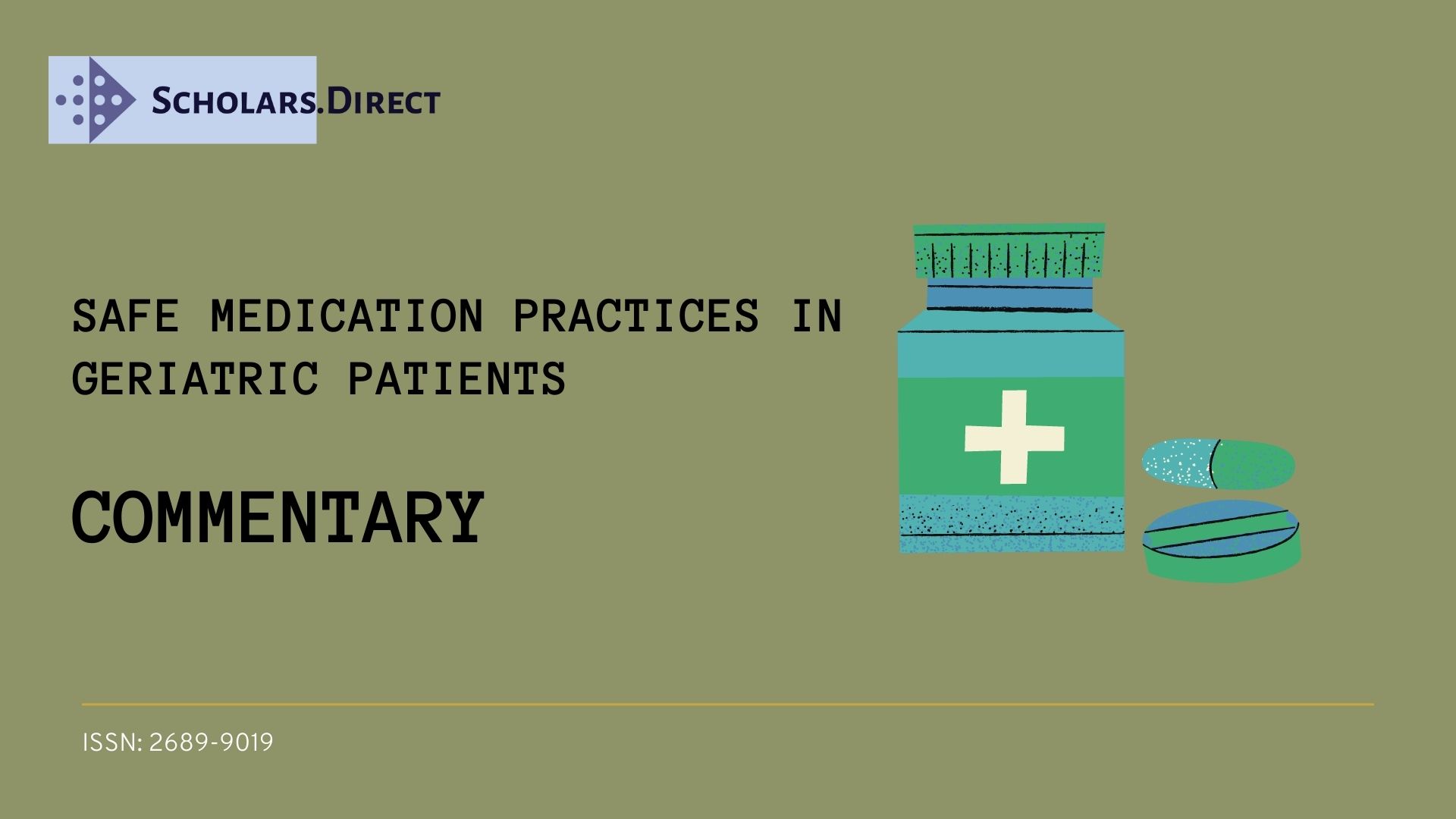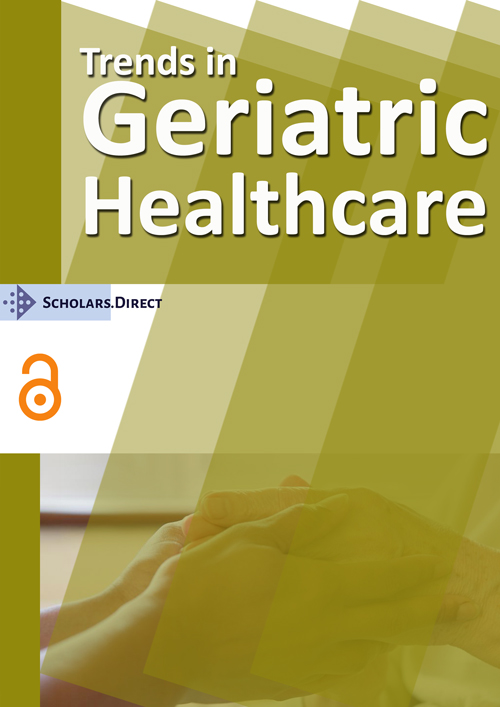Safe Medication Practices in Geriatric Patients
The number of geriatric patients, individuals aged above 65-years-old, is gradually increasing at a high rate. This vulnerable population is at higher risk because they are subject to chronic conditions, such as kidney diseases, mental health issues and diabetes. These risks include adverse outcomes, drug toxicity, overdose, and errors in prescriptions. Additionally, neglecting geriatric patients may lead to re-hospitalization, medical side effects and worsening medical conditions. Health professionals need to handle this delicate age group through safe medication practices. For that reason, pharmacists play a pivotal role in this populations' health maintenance. They will review patients' profiles, including ensuring prescriptions are used properly and supplements are used effectively. A comprehensive solution to maintaining the health of geriatric patients with chronic conditions is necessary through safe medication practices and management; a shared responsibility that improves quality care provision.
Safe medication practices involve the behavioral commitment of patients to ensure the prescriptions maintain the health of this vulnerable population. These responsible exercises also include having the knowledge and positive attitude associated with medical safety. First, it is crucial to track and make updated observations of the medication list prescribed by a physician to avoid consuming expired or discontinued drugs. In most cases, older patients are isolated from medication information. According to research, the geriatric population use expired drugs because they struggle with reading details on the package labels [1]. Family members should assist the elderly in tracking their medication lists. Second, nurses and pharmacists should encourage patients with chronic conditions to revise medical information before and during discharge to avoid further risks. According to Ahuja [2], during hospitalization, hospitals stop 40% of admission medications and start 45% of discharge medications. This information reveals errors medical facilities make when releasing patients. During this transition period, older patients need to understand the surgical reason for their discharge; a situation can shape the recovery trajectory. Third, the health maintenance process can succeed through equipping older patients with knowledge of medications side effects. Caregivers should assist the elderly by asking pharmacist questions to avoid risking the life of this vulnerable population. Although some geriatric patients are aware of the usage of drugs, they are occasionally alienated from information about usage methods and potential side effects [1]. Pharmacies should observe the amnesia tendency and a longstanding tradition of self-medication to prevent this population from risking their lives. Generally speaking, the accountability by older patients with chronic conditions will maintain a steady recovery to their health through safe medication practices.
Caregivers can also participate in the maintenance of the elderly's well-being by adhering to safe medication management approaches. In particular, these individuals need to use these safety considerations to adjust to varying conditions. The shared responsibility between caregivers and registered nurses involves medication reconciliation, physically handling prescriptions, and making complex decisions. First, caregivers need to make a medication reconciliation record, which involves establishing a precise list elderly patients have to take after discharge. This approach ensures patients receive the core prescriptions and limit medical errors that can be catastrophic [3]. Keeping a list would focus on the number and frequency of doses to be followed. Second, caregivers should physically handle the medication through ordering, purchasing or dispensing, refilling, cutting, storing, and splitting the medicine for the patient [4]. The latter's involvement and presence will depend on the incapability of the elderly in-home care services. A care provider handling a physically incapable patient will be fully involved in the mentioned activities. Third, caregivers can participate in medication management through indirect and complex activities. These practices usually demand critical thinking and decision-making capacity of the care provider [4]. For example, the caregiver has to monitor the health condition of the care recipient while keeping the latter's physician updated on the recovery process. Therefore, informal care providers maintain the health of geriatric patients with chronic conditions by fulfilling the unmet needs.
The Role of Pharmacists in Telemedicine for Geriatric Patients
Tele mediation management is beneficial in geriatric patients through its ability to use electronic communication to improve the quality of health care. The Methods used in this interaction include email, smart phones, wireless devices, and video calls. Noteworthy, telemedicine can be used to enhance pharmacist services in medical facilities. One of the benefits includes close monitoring of the elderly patient without a 24 hours supervision of a nurse [5]. In such circumstances, the pharmacist can assess the success of the prescribed drugs after working hours. The second benefit is that telemedicine offers responsive care, whereby an alarm sets off to inform health practitioners of potential drug errors [5]. Pharmacists can use this situation to counsel on prescribed new dosages for the patients, emphasizing the significance of such remote methods. In some cases, telemedicine, through smart phones, can help a pharmacist sustain a lasting relationship with care recipients. For example, the two can have a more personalized and positive interactions, with the geriatric patient receiving remote pharmacist services.
In conclusion, a comprehensive approach to health maintenance among older populations with chronic conditions is crucial through safe medication activities and medication management, which are shared responsibilities designed to improve the quality of care in a medical system. Geriatric patients should be accountable by tracking medications, revising medications lists, and being aware of possible side effects. Additionally, informal caregivers need to be physically and intellectually involved in safe medication management. Care providers make medication reconciliation lists, order and measure dosage, and make decisions under the supervision of pharmacists. Likewise, telemedicine enhances pharmacist services in the nursing environment through the supervision of medicinal therapy. Pharmacists can interact with a patient remotely sharing prescription knowledge. Some devises can trigger alerts that can inform pharmacists of safer medications for the care recipients.
References
- Lee M, Kim K, Rhew K, et al. (2021) A knowledge, attitude, and practice survey on medication safety in Korean older adults: An analysis of an ageing society. Healthcare 9: 1365.
- Ahuja K (2020) Medication safety in elderly patients. MOJ Gerontol Geriatr 5: 42-45.
- Werner NE, Malkana S, Gurses AP, et al. (2017) Toward a process-level view of distributed healthcare tasks: Medication management as a case study. Appl Ergon 65: 255-268.
- Look KA, Stone JA (2018) Medication management activities performed by informal caregivers of older adults. Res Social Adm Pharm 14: 418-426.
- Kane-Gill SL, Niznik JD, Kellum JA, et al. (2017) Use of telemedicine to enhance pharmacist services in the nursing facility. Consult Pharm 32: 93-98.
Corresponding Author
Omar Al Kherish, Pharm.D, Johns Hopkins Aramco Health Care, Dhahran, Saudi Arabia, Tel: +966-500-1400-30.
Copyright
© 2022 Kherish OA, et al. This is an open-access article distributed under the terms of the Creative Commons Attribution License, which permits unrestricted use, distribution, and reproduction in any medium, provided the original author and source are credited.





